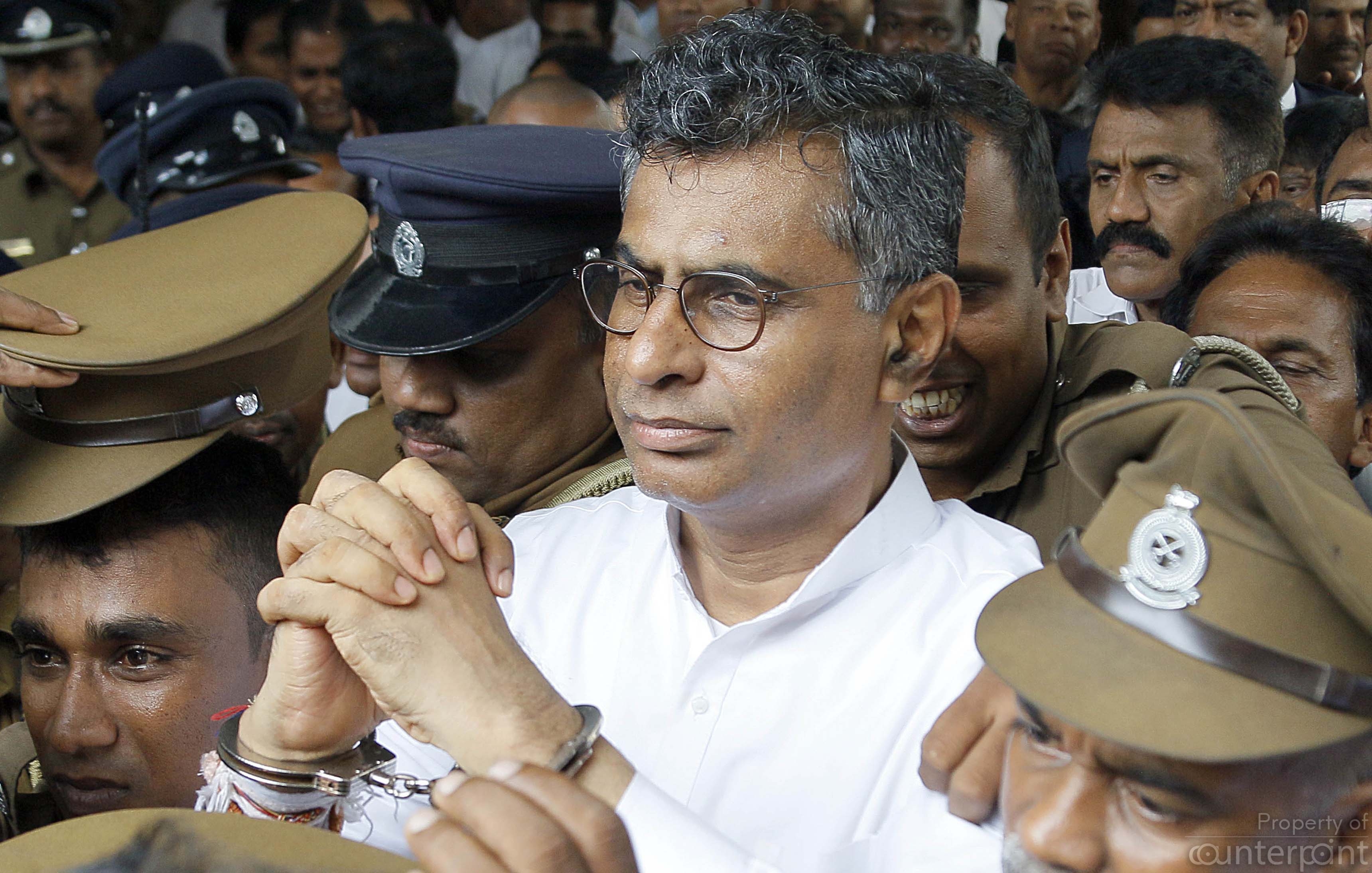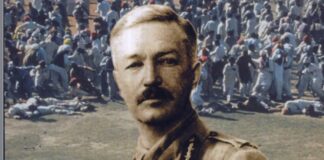
The incumbent government seems determined to undo what its predecessor did. It has disbanded the FCID (Financial Crimes Investigation Division) of the Police and upended the CID, which now has a new team at the helm. It has also declared its intention to do away with the 19th Amendment to the Constitution, which the previous government considered the jewel in its crown. Some provisions in this hurriedly introduced constitutional amendment made governance well-nigh impossible by bringing the President and the Prime Minister on a collision course. The government is under pressure not to throw the baby out with the bathwater, but the signs are that it will not heed wise counsel.
The yahapalana administration was in a mighty hurry to amend the Constitution to further its interests, and the present administration is all out to abolish the 19th Amendment to advance its political agenda. Haste is to be avoided in writing or amending a Constitution, but the Sri Lankan politicians do not hesitate to subjugate anything to their political agendas, which take precedence over everything else.
The SLPP has made known its intention to secure a two-thirds majority at the upcoming parliamentary polls to change the Constitution. It has set for itself an extremely ambitious target. Perhaps, it is toying with the idea of springing some crossovers from the Opposition to muster the required numbers.

The onset of arrests?
Arrests have begun. Former Minister Champika Ranawaka, MP, has been arrested over a road accident that happened in 2016 during the yahapalana government. Two eyewitnesses insist that Ranawaka drove the vehicle which collided with a motorcycle, seriously injuring its rider. One of Ranawaka’s drivers surrendered himself to the police afterwards, claiming the responsibility for the crash. He faced a fine. The new administration has launched a fresh probe, which Ranawaka calls a witch-hunt. The Attorney General is convinced otherwise.
The UNP MPs have pledged their solidarity with Ranawaka in remand, but his case will have to be argued in court. A cursory look at the newly unearthed evidence is sufficient for one to conclude that Ranawaka’s lawyers have their work cut out.
Two notorious characters who claimed, at a press briefing, last month, days before the presidential election, that they had first-hand experience of White Van abductions under the Rajapaksa government, have been arrested and remanded. UNP MP Rajitha Senaratne, who brought them to the press conference and made the introductory remarks, is a worried man. One of them claimed he had driven a White Van, which transported abductees, who were tortured and fed to crocodiles in a tank in Moneragala. The other said he has been transporting the gold recovered from the LTTE during the war and he had been abducted as he was aware of a racket involving some bigwigs of the then regime. He was described as the only person to have survived a White Van abduction.
The arrest of UNP MP Senaratne is said to be imminent. Unless his second anticipatory bail application is accepted by court, he may be arrested any moment.
The 2015 regime change led to a spate of arrests, and we are likely to witness a replay of history within the next few weeks. The UNP has said the caretaker government is using arrests to frighten some Opposition MPs into closing ranks with it.
Main challenge before SLPP
Arrests have apparently become a form of public entertainment in this country. But they won’t help the caretaker government remain popular; it is faced with the uphill task of making good on its election promises if its popularity ratings are not to plummet. The SLPP has to live up to the expectations of the people, especially those who voted for it, if it is to win the next general election. Had the parliamentary polls come close on the heels of the presidential election, the SLPP would have been faced with no such problem; it would even have been able to better its performance. Now, it has to deliver on what it promised.
In 2015, the UNP-led UNF coalition found itself in a similar situation, after winning the presidential election. It formed a caretaker government and launched its 100-programme with a view to improving its chances of winning the general election with a thumping majority. But it failed to secure a working majority; it obtained only 106 seats as opposed to the UPFA’s 95. The UNF administration granted economic relief to the public; it slashed taxes and fuel prices while giving the public sector workers an unprecedented pay hike. All these measures, however, did not help it realise its goal. One of the main reasons for its failure was the first bond scam (Feb. 2015); the then Opposition flogged this issue effectively to turn public opinion against the UNF.
The SLPP has not committed anything of the magnitude of the bond scams yet, but the anti-incumbency factor usually has a corrosive effect on the popularity of the ruling party or coalition. This may be the reason why President Gotabaya Rajapaksa told the media heads on Dec. 16 that he would dissolve Parliament, come mid-March. He, however, will have to fulfil at least some of the key promises in his presidential election manifesto before that. This is a tall order.

GR’s style of governance
What has impressed the public most under the incumbent caretaker government is President Rajapaksa’s style of governance. He has downsized the Cabinet and his personal staff and opted for a smaller security convoy while taking steps to curtail government expenditure, which was rampant under his brother, Mahinda Rajapaksa’s government. He has decided not to use the VIP lounge at the BIA. Other government politicians have had to follow suit or pay a hefty fee for using that facility. He also takes care not to be a nuisance when he travels on public roads.
The new President’s wife avoids the limelight and so does their son. One is reminded of the late J. R. Jayewardene’s family; they maintained a very low profile. JRJ became unpopular due to his own commissions and omissions and not those of his family members. His wife was rarely seen in public. His son, Ravi, who was in a league of his own, was in fact an asset to the country; he was instrumental in establishing the police Special Task Force (STF) among other things. Even the worst enemies of JRJ had no unkind words to say about his wife and son.
The executive presidency is only a shadow of its former self, and President GR cannot do a JRJ, who had the entire UNP parliamentary group under his autocratic thumb by obtaining undated resignation letters. Cynics said that in JRJ’s heyday, his MPs did not open their mouths even for tooth extractions without obtaining his permission. If the SLPP wins the next parliamentary election, President GR may not be able to control the SLPP the way he has done so far, and some ministers, whose loyalty will be to Prime Minister Mahinda Rajapaksa, who does not care to keep his MPs on a tight lease, may step out of line and revert to their old habits.
UNP’s elephantine problem
Whoever would have thought, in November 2018, that the UNP would be in crisis again? It fought hard to scuttle the hurriedly formed Sirisena-Rajapaksa government, and gained a lot of political mileage, in the process. Having regained the control of Parliament through a judicial intervention cum a political battle, a revitalized UNP leaders said, tongue in cheek, that they thanked the SLPP and the SLFP for having helped unify their party.
The UNP parliamentary group and the rank and file rallied behind the then beleaguered Prime Minister Ranil Wickremesinghe as never before; the failed constitutional coup was a godsend for him. He consolidated his power in the party, but nothing his government did thereafter helped shore up its image or crumbling vote base. It thought its accelerated development programme, Gamperaliya, and other projects to grant economic relief to the public would translate into votes, but things did not go as planned.
The UNP is again embroiled in a leadership crisis with its unsuccessful presidential candidate Sajith Premedasa demanding the party leadership, and Wickremesinghe doing all in his power to foil his bid. Feeling let down, Sajith does not want to lead the UNP’s parliamentary election campaign unless he is made the UNP leader. Once bitten, he seems to be twice shy; he stopped demanding the party leadership after being named the UNP presidential candidate. He has fallen between two stools.
A leadership Council in UNP
The Sunday Divaina newspaper has reported that the Ranil faction is mulling over abolishing the post of party leader and appointing a leadership council instead. This shows the extent to which the Ranil loyalists are ready to go in their efforts to hold Sajith at bay. The leadership crisis is bound to debilitate the UNP further with only a few more months to go for the next general election.
Even if a leadership council is appointed, there will have to be a primus inter pares or the first among equals. Otherwise, a council cannot operate. Who will it be? Such ad hoc measures will not help the UNP resolve its leadership crisis; they amount to papering over the cracks.
While Gotabaya is planning the next battle, the Greens are at war with themselves. Unless the UNP puts its leadership crisis behind it, works on its mistakes, strengthens its grassroots level organisations and gets ready for the general election, it might make the SLPP’s goal of securing a two-thirds majority easy.


 Logging you in...
Logging you in... Loading IntenseDebate Comments...
Loading IntenseDebate Comments...

